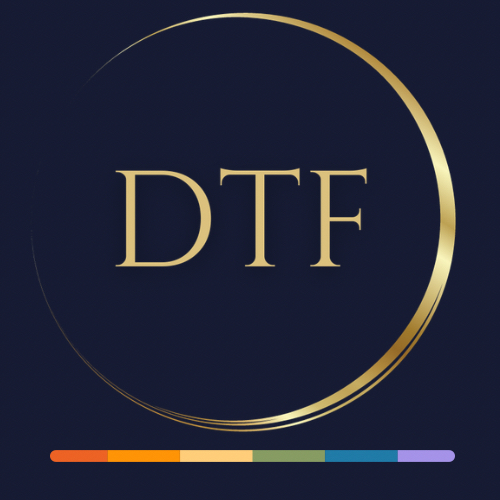Do You Really Need Supplements? A Straight-Talking Guide for Over-40s
By David Todd – Online Coach at DTF | David Todd Fitness

Let’s get something straight from the start: supplements are exactly what the name suggests—supplements to a balanced diet. They’re not miracle pills. They won’t fix a poor lifestyle. But for some people, especially those of us over 40, they can absolutely help support energy, recovery, sleep, bone health, gut health, and muscle-building.
I’m going to walk you through the supplements I personally take, why I take them, and what I recommend to my DTF coaching clients. You’ll also get guidance on what to avoid and when you might be wasting your money.
Why Supplement at All?
As we get older, a few key things start to happen:
- We absorb nutrients less efficiently
- Our recovery slows
- Sleep becomes more elusive
- Our joints and connective tissue need more support
- Muscle mass starts to decline unless we fight to maintain or build it
You can get most of what you need through a well-balanced diet—lots of colourful veg, lean protein, healthy fats, and unprocessed whole foods. But let’s be real: modern life isn’t always that tidy. That’s where smart, targeted supplementation comes in.
My Essential Stack (and Why I Take It)
1. Calcium, Magnesium, Zinc with D3, K2, Copper & Boron

A proper all-in-one for bone health, muscle contraction, and hormonal balance.
- Magnesium supports sleep, energy production, and stress regulation (many people are deficient).
- Vitamin D3 + K2 combo improves calcium absorption and directs it to bones, not arteries.
- Zinc helps immune function and testosterone regulation.
- Copper & Boron support bone density and mineral balance.
Caution: If your diet is rich in leafy greens, nuts, dairy, oily fish, and seeds, you may not need all of this every day—but it’s excellent coverage if you’re unsure.
2. Glycine (500mg daily)
An underrated amino acid.
- Helps with collagen production, sleep, and recovery.
- May support gut health and liver detoxification.
Glycine is naturally found in bone broth, gelatin, and animal skin—but it’s hard to get consistently in high amounts unless you eat those daily.
3. Hydrolysed Marine Collagen (Type I & III – 1,200mg x 2 caps daily)

Why collagen? Because you’re not 25 anymore.
- Supports joint health, skin elasticity, connective tissue repair.
- Especially important for active individuals over 40 who want to stay injury-free.
Top Tip: Collagen works best when paired with vitamin C, so take it with a meal or snack that includes fruits or vegetables.
4. Double Magnesium (with B6 – taken before bed)

This version is likely magnesium bisglycinate, which is gentle on the stomach and absorbed well.
- Helps relax the nervous system, reduce anxiety, and improve sleep quality.
- B6 improves magnesium absorption and contributes to serotonin production.
Great for winding down at night—and if you train hard or feel constantly tired, this can be a game-changer.
5. Probiotics (2 Types Daily)

Gut health = overall health.
- Different probiotic strains support immune function, digestion, mood, and even body composition.
- Rotating between types or taking a variety helps ensure diversity in your gut microbiome.
Not essential for everyone, but if you’ve had antibiotics, travel a lot, or experience bloating, this can make a noticeable difference.
6. Creatine Monohydrate (5g daily)

Hands down the most researched and effective supplement for muscle growth, brain health, and performance.
- Boosts ATP production, meaning more strength and power in the gym.
- Supports cognitive function, especially as we age.
- Aids muscle maintenance during fat loss or aging.
Safe for daily use. No need to cycle.
7. Whey Protein (as needed)

A convenient way to hit your protein goals, especially post-workout or on busy days.
- Protein is essential for muscle growth, recovery, and fat loss.
- Whey is quick to absorb and contains all essential amino acids.
I personally like the Decathlon vanilla whey—simple, affordable, effective.
8. L-Carnitine (When in a Fat Loss Phase)

Not essential, but can be helpful.
- Supports fat metabolism and energy production, particularly when in a calorie deficit.
- Often more useful when combined with movement (fasted walks or training).
Not magic, but a small boost when dialling in fat loss.
What You Don’t Need (Most Likely)
Here’s where you might waste money:
- Multivitamins – Often poorly absorbed and not needed if you eat a varied diet.
- BCAAs – If you’re eating enough protein, you’re covered.
- “Fat burners” – Usually just caffeine with a fancy label.
- Mega doses of any one vitamin – Can cause imbalances or toxicity. More isn’t always better.
Final Thoughts: Don’t Let Supplements Distract You from the Basics

- Prioritise sleep, training consistency, hydration, and good food.
- Use supplements as a boost, not a crutch.
- If in doubt, get tested—especially for vitamin D, iron, or magnesium if you suspect deficiency.
If you’re in the DTF programme and want personalised advice on supplements, I’ll guide you based on your goals, diet, and training phase. No fluff, no gimmicks—just what works.
Got questions about your current supplements or what might help you? Drop me a message inside the app or reach out via the contact page.

Stay strong,
Dave
